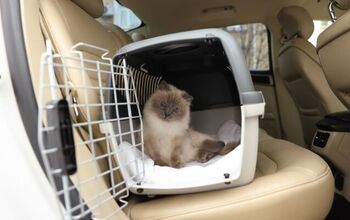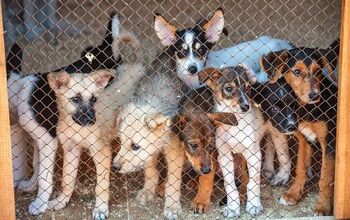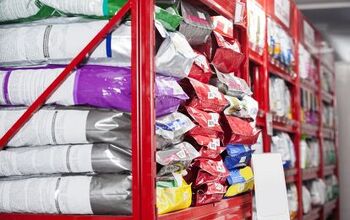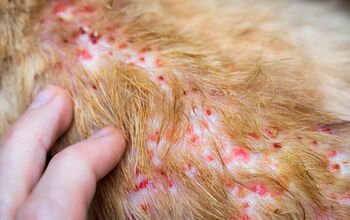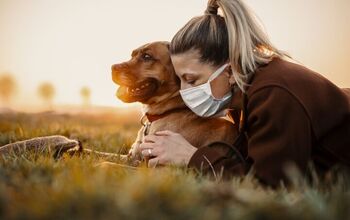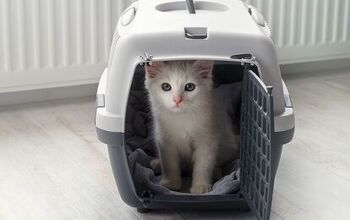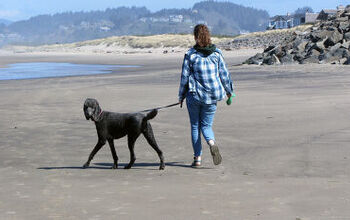Help The Puppy Mill Project Shut Down The Puppy Production Line

Who doesn’t love a puppy? Those big brown eyes, that wet nose, a fluffy tail that tickles your toes. It’s hard to imagine these lovable little guys as “products.” But to puppy mill operators, they’re just a commodity. The big problem with puppy mills, aside from the torturous conditions under which animals are kept, is that many people are simply unaware of how common they are, and seemingly reputable puppy dealers, like pet stores, are helping to keep these puppy production lines in business. The Puppy Mill Project (TPMP), a Not For Profit corporation, is working to change that by creating awareness by educating the public. “Ninety nine percent of all pet store puppies are puppy mill puppies,” states the organization’s website. As long as the demand for these dogs exists, puppy mills will continue to operate.
By exposing the facts about puppy mills, TPMP aims to point would-be pet parents to alternative sources for furry friends, like animal rescues, adoption and responsible breeders that operate under the “humane model.” By cutting off puppy mills’ business and profits, TPMP hopes to shut down these pitiless puppy factories.
Related: From Rescue To Runway: Cavalier Newest Model For Designer Karen Walker
The Puppy Production Line
How much is that doggy in the window? The price is more than you’d think. When you purchase a puppy at your local pet store, the chances are pretty good that it came from a puppy mill. According to TPMP, approximately 2.5 million puppies are born in puppy mills every year. And more puppies mean more money in the hands of the mill operators. To maximize their profits, puppies are denied medical care, while the breeding dogs (some 400,000 of them) are kept, caged, starved, lack medical care, and many never see the light of day – or another day. The sad truth is that the United States Department of Agriculture, which is charged with monitoring some 3,300 commercially licensed breeding facilities, simply doesn’t have the means to keep tabs on them all, not to mention the unlicensed facilities. Puppy mill operators are literally getting away with murder, and it will continue as long as the orders keep coming in for these “production line puppies.”
Related: What To Look For In A Reputable Breeder
TPMP on the street
The Puppy Mill Project aims to educate people about responsible pet sources, and expose the dodgy ones. That’s why you’ll find TPMP volunteers all across the Chicago land area at community events, festivals and expos. You’ve probably seen the group staging peaceful protests at local pet stores – a weekly event since the organization’s inception in 2009. You may have even seen them at your kids’ preschool, elementary school, high school or college, where they conduct age-appropriate educational programs and lectures. The organization recognizes that kids play a huge role in choosing the family pet, and TMPM teaches these young influencers to make responsible choices.
What can you do?
If you want to be an agent for change, you need to hurt puppy mill operators where it hurts – right in their profits! Don’t buy your puppies from pet stores. Get educated. First, check out your local shelters for in-need puppies looking for good homes. If you want a particular breed of puppy, research breeders to ensure they are reputable and make sure to visit the breeder at their home and meet both of the puppy’s parents.
Spread the word and join The Puppy Mill Project movement. For more information, to donate to the cause or to learn how you can stop puppy mills in your area, visit The Puppy Mill Project website.
Lydia McNutt is an award winning writer, editor, blogger and proud mama of three of the fur-babies: her two cats, Phoebe and Brewster (who think they are dogs,) and her 90-pound yellow lab, Fred – the biggest lap dog you’ll ever meet. When her head’s not in a cloud of fur, you’ll find Lydia chasing her toddler through the neighborhood, reading a good biography, or writing about… Well, you’ll just have to read more of Lydia’s articles to find out!

More by Lydia McNutt





